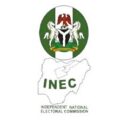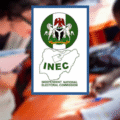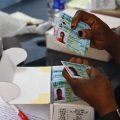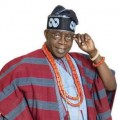Politics
What Is the Role of INEC and How It Works
Published
5 months agoon

When it comes to democracy, elections are one of the most crucial pillars. Free, fair, and credible elections give people the chance to choose their leaders and hold them accountable. In Nigeria, the body that oversees this process is INEC – the Independent National Electoral Commission. The commission plays a central role in maintaining the integrity of elections, ensuring fairness, and upholding the democratic values enshrined in Nigeria’s constitution.
But what exactly does INEC do? How does it function? And why is its role so significant to Nigeria’s political stability? Let’s dive deep into the structure, duties, and workings of INEC.
A Brief History of INEC
Nigeria has had a long and sometimes turbulent history with electoral bodies. Before INEC was established in 1998, there were other commissions tasked with organizing elections. These included:
- Electoral Commission of Nigeria (ECN) in 1958
- Federal Electoral Commission (FEC) in 1960
- Federal Electoral Commission (FEDECO) during the 1979 Second Republic
- National Electoral Commission (NEC) in the early 1990s
- National Electoral Commission of Nigeria (NECON) in 1995
However, many of these bodies were either dissolved or rendered ineffective due to military coups and political instability. INEC was finally established in 1998 during the transition to civilian rule and was given constitutional backing under the 1999 Nigerian Constitution and the Electoral Act. Since then, INEC has been the main institution responsible for managing elections in Nigeria.
The Role of INEC
INEC’s mandate is broad and central to Nigeria’s democratic process. Its primary roles include:
1. Conducting Elections
The most obvious responsibility of INEC is to organize, supervise, and conduct elections for public offices. This includes:
- Presidential elections
- Gubernatorial elections
- National Assembly elections (Senate and House of Representatives)
- State Houses of Assembly elections
- Local government elections (in some cases, though many states have State Independent Electoral Commissions for these)
INEC ensures that the entire process, from voter registration to announcing results, is transparent and credible.
2. Registering Political Parties
INEC registers and monitors political parties in Nigeria. It sets the criteria parties must meet before being recognized, including having a constitution, a national presence, and democratic internal structures. INEC also has the power to deregister parties that fail to meet legal requirements.
3. Voter Registration and Education
Without a valid voter’s register, no credible election can take place. INEC is tasked with:
- Compiling and updating the national voter’s register.
- Issuing Permanent Voter Cards (PVCs).
- Educating citizens about their voting rights and responsibilities through voter education campaigns.
This role is particularly important in a country with over 200 million people and diverse literacy levels.
4. Delimitation of Constituencies
INEC is responsible for creating and adjusting electoral constituencies and polling units to ensure fair representation. As Nigeria’s population grows and shifts, new polling units are created to reduce overcrowding and ensure that people can vote conveniently.
5. Monitoring Political Parties and Campaigns
Beyond registration, INEC monitors the activities of political parties to ensure compliance with campaign finance rules, internal democracy, and adherence to electoral guidelines. It sets spending limits for candidates and tracks donations and campaign expenditures.
6. Ensuring Electoral Integrity
INEC also works to prevent electoral malpractice such as vote-buying, rigging, or ballot stuffing. Through technology like the Bimodal Voter Accreditation System (BVAS) and the INEC Result Viewing Portal (IReV), the commission has been introducing reforms aimed at improving transparency.
7. Conducting By-Elections and Referendums
In situations where an elected office becomes vacant before the expiration of tenure, INEC organizes by-elections. The commission also has the responsibility to conduct referendums when necessary, as stipulated by law.
How INEC Works
To understand INEC better, let’s take a closer look at its structure and operational framework.
1. Structure of INEC
INEC operates under the leadership of a Chairman who is appointed by the President but must be confirmed by the Senate. The Chairman is supported by:
- National Commissioners – They oversee various departments such as voter registration, operations, political party monitoring, and legal services.
- Resident Electoral Commissioners (RECs) – Each of Nigeria’s 36 states and the Federal Capital Territory has a REC who oversees elections within their jurisdiction.
- State and Local Government Electoral Officers – These manage electoral processes at the grassroots level.
This hierarchical structure ensures that INEC has a presence across all levels of governance in Nigeria.
2. Funding and Independence
INEC is meant to operate independently, free from political interference. Its funding is drawn from the federal budget, and the constitution grants it financial autonomy. However, debates about whether INEC is truly independent remain common, especially given that its leadership is appointed by the President.
3. Electoral Processes and Technology
In recent years, INEC has been adopting technology to strengthen credibility in elections:
- Smart Card Readers (SCRs): Introduced in 2015 to authenticate PVCs and reduce impersonation.
- BVAS (Bimodal Voter Accreditation System): Replaced SCRs in 2021, allowing fingerprint and facial recognition to verify voters.
- IReV (INEC Result Viewing Portal): Enables Nigerians to view polling unit results online in real time.
These innovations are meant to increase trust in the system, though challenges like network issues, logistics, and human interference remain.
ALSO READ : Bala Mohammed denies plotting for 2027 VP seat
4. Collaboration with Stakeholders
INEC does not work in isolation. It collaborates with civil society organizations, election observers (local and international), security agencies, the judiciary, and the media to conduct elections. This collaboration helps ensure accountability, security, and transparency.
Challenges Facing INEC
Despite its importance, INEC faces significant challenges that affect its effectiveness:
- Electoral Violence: Elections in Nigeria are often marred by violence, making it difficult for INEC officials to operate safely.
- Logistical Issues: Nigeria’s vast geography and poor infrastructure sometimes hinder the timely distribution of materials.
- Political Interference: There are persistent concerns about INEC’s independence, especially regarding appointments and funding.
- Voter Apathy: Many Nigerians distrust the process and choose not to participate.
- Technology Limitations: While BVAS and IReV have improved transparency, poor internet access in rural areas often creates problems.
- Legal Disputes: Elections in Nigeria frequently end up in court, sometimes undermining INEC’s credibility.
The Importance of INEC in Nigeria’s Democracy
The success or failure of Nigeria’s democracy largely rests on INEC’s shoulders. Its ability to conduct credible elections determines whether citizens trust the political system. Credible elections strengthen democracy by:
- Giving citizens confidence in governance.
- Promoting accountability among leaders.
- Reducing electoral violence and post-election disputes.
- Encouraging political participation.
If INEC falters, democracy itself is weakened. That is why reforms and constant improvements are necessary.
How INEC Can Improve
To strengthen Nigeria’s electoral system, INEC must continue to evolve. Some recommendations include:
- Deepening Independence: The appointment process for INEC leaders could be made more transparent and less influenced by the ruling party.
- Improving Logistics: Better planning and investment in infrastructure can prevent late arrivals of materials and officials at polling units.
- Enhancing Voter Education: Massive campaigns, especially in rural areas, can help reduce apathy and misinformation.
- Leveraging Technology: Continuous upgrading of electoral technology and backup systems is essential to build trust.
- Security Collaboration: Working closely with security agencies to protect voters, officials, and materials is crucial.
Conclusion
The Independent National Electoral Commission (INEC) is the backbone of Nigeria’s democracy. It plays a vital role in ensuring that elections are free, fair, and credible. From voter registration to announcing results, INEC is responsible for safeguarding the people’s will.
While challenges such as political interference, logistical problems, and technological limitations exist, INEC has made significant progress over the years, especially with the introduction of BVAS and online result viewing. For Nigeria’s democracy to thrive, however, INEC must continue to improve its transparency, independence, and efficiency.
Ultimately, the strength of Nigeria’s democracy depends not just on INEC, but also on the participation and vigilance of its citizens. A strong electoral body, combined with active citizen engagement, can help build a Nigeria where the ballot truly reflects the people’s voice.
You Might Also Like These
 What Is the Role of INEC and How It Works
What Is the Role of INEC and How It Works
 INEC Registers 69,376 Voters Online in 7 Hours
INEC Registers 69,376 Voters Online in 7 Hours
 CVR: We’ll Detect Multiple Registrations — Sokoto REC
CVR: We’ll Detect Multiple Registrations — Sokoto REC
 2023 Elecion: INEC will disenfranchise millions of youths – LP raises alarm
2023 Elecion: INEC will disenfranchise millions of youths – LP raises alarm
 How to Register a Political Party in Nigeria
How to Register a Political Party in Nigeria
 Ogun By-Election: INEC Sends Out Materials, Vows Fairness
Ogun By-Election: INEC Sends Out Materials, Vows Fairness
 How the Nigerian Senate Works: Explained
How the Nigerian Senate Works: Explained
 How to Get Your PVC in Nigeria: Step-by-Step Guide in 2025
How to Get Your PVC in Nigeria: Step-by-Step Guide in 2025
 Computer virus destroys Permanent Voters’ Card data in Delta State
Computer virus destroys Permanent Voters’ Card data in Delta State
 June 12: Tinubu warns against return to dictatorship
June 12: Tinubu warns against return to dictatorship
 PDP is Planning To Sack Jega and Postpone Election Again – APC
PDP is Planning To Sack Jega and Postpone Election Again – APC
 Don’t Treat Us Like Conquered People, PDP Warns APC
Don’t Treat Us Like Conquered People, PDP Warns APC

